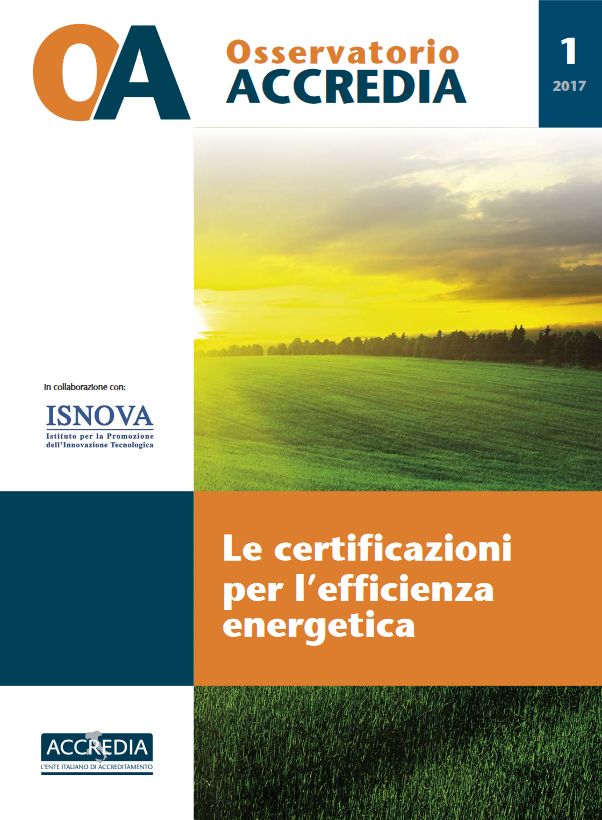Energy
Accreditation for energy efficiency
Accredited certification and energy audits contribute to the effectiveness of national policies by qualifying professionals and verifying management systems.
Accredited certifications are essential for ensuring compliance with energy efficiency normative framework and for improving the energy performance of organizations.
Accreditation plays a key role in supporting policies and operations aimed at promoting sustainability and energy efficiency, both in the public and private sectors. Accredited certifications, issued by qualified bodies, ensure that businesses and organizations adopt effective energy management practices, improving their competitiveness and reducing their environmental impact.
Accreditation and the environment
Certifications issued by accredited bodies are essential to ensure conformity with rules and standards and support the improvement of energy performance.
Directive 2012/27/EU lays the foundations for a harmonized framework of policies and interventions aimed at sustainability and improving energy efficiency at the European level.
In Italy, Legislative Decree 102/2014, which implements the Directive, defines a set of measures aimed at promoting energy efficiency, addressing aspects such as the end use of energy in public and private buildings, purchases by central public administrations, and the measurement and billing of energy consumption.
The Decree also requires large and energy-intensive companies to carry out energy diagnosis. These must be carried out by qualified professionals, such as Energy Management Experts or Energy Auditors, or by accredited Energy Service Companies (ESCo).
Companies that already have accredited certification for their energy management system are exempt from the audit requirement.
This regulatory framework assigns a key role to accredited energy efficiency certifications, which must be issued by bodies accredited by Accredia, in accordance with the relevant technical standards:
- UNI CEI EN ISO 50001 for Energy Management Systems (EMS).
- UNI CEI 11352 for Energy Service Companies (ESCo).
- UNI CEI 11339 for Energy Management Experts (EGE).
- UNI CEI EN 16247-5 for Energy Auditors (AE).
Energy Certifications
The accredited certifications for energy efficiency provided for by Legislative Decree no. 102/2014 concern Energy Management Systems (EMS), Energy Service Companies (ESCo) and Energy Management Experts (EGE) and are issued by bodies specifically qualified by Accredia to verify conformity with the applicable standards.
Energy Management Systems – EMS
The UNI CEI EN ISO 50001 standard for the certification of Energy Management Systems. The Energy Management System is the set of tools and strategies for improving energy performance. Certified EMS involves the analysis and definition of objectives, the implementation of procedures, the monitoring and recording of activities, and the verification of results.
Energy Service Company – ESCo
The UNI CEI 11352 standard for the qualification of Energy Service Companies. Certified Energy Service Companies aim to offer effective integrated energy services with guaranteed results. ESCo deal with the diagnosis and design, implementation, and management of rationalization and energy saving measures for public bodies and businesses.
Energy Management Experts – EGE
The UNI CEI 11339 standard for certifying Energy Management Experts. An Energy Management Expert is a professional figure capable of organizing efficient energy management. EGEs must demonstrate in-depth expertise in environmental, economic and financial matters, communication, and business management.
Energy efficiency certifications
The study explores the advantages for Energy Management Experts (EME) and energy service companies (ESCo) that choose accredited certification to qualify their energy services offering on the market, and for public and private organizations that certify their Energy Management System (EMS).
Read the study